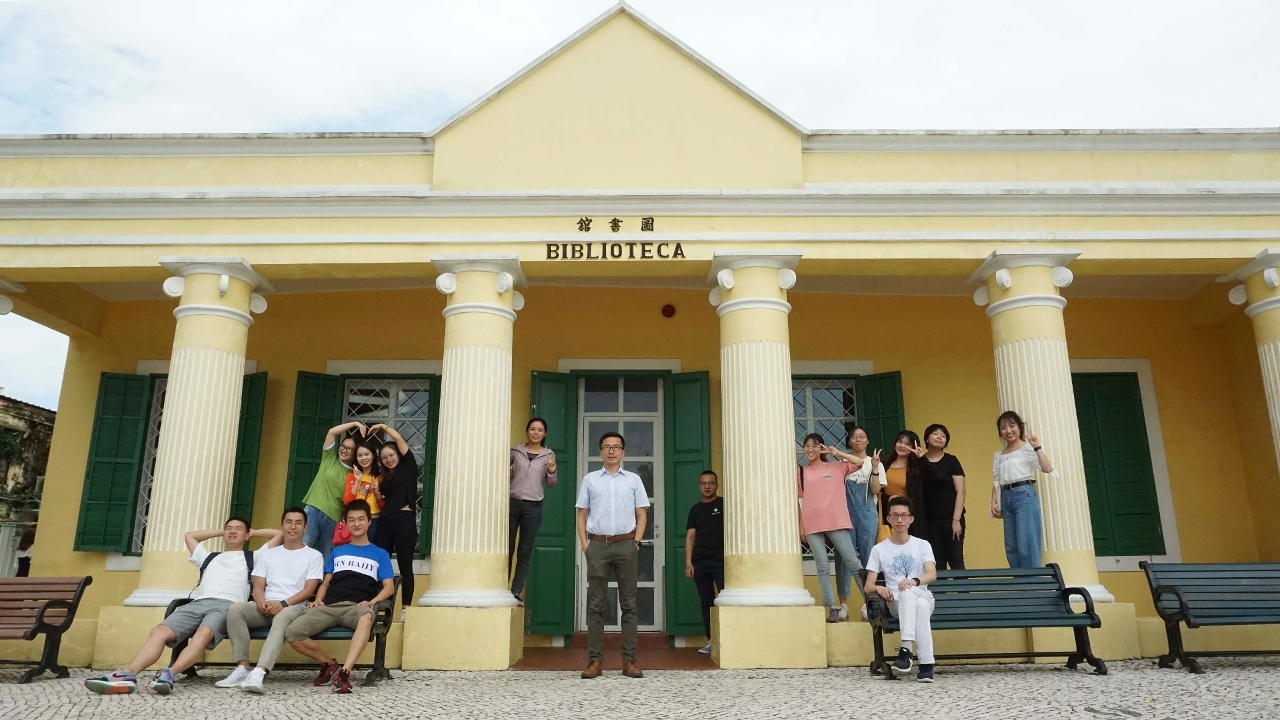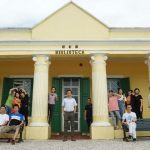 Prof Wang Ruibing and the research team
Prof Wang Ruibing and the research team
A research group led by Wang Ruibing, associate professor in the Institute of Chinese Medical Science, University of Macau (UM), has developed a bacteria-mimetic supramolecular nanomedicine by immune cells in vivo, which can realise cell-hitchhiking delivery to solid tumours in targeted cancer therapies. The research findings have been published in the world-renowned multidisciplinary journal Science Advances.
In recent years, cells have received increasing attention as potential drug carriers due to their high biocompatibility, long systemic circulation, and accumulation in specific tissues. The in vitro preparation of cell-based carriers often involves complex and time-consuming processes that may damage cells and cause contamination. Immune rejection may occur when cell-based formulations are applied to different individuals. Therefore, it is of paramount importance to develop a new formulation of medicine that may hitchhike cells directly in vivo to realise cell-hitchhiking drug delivery.
In this study, the team developed an in vivo strategy to efficiently and stably hitchhike phagocytic immune cells via supramolecular self-assembly of bacteria-mimetic nanomedicine intracellularly for enhanced immune cell-based drug delivery. In response to tumour inflammation, immune cells carry intracellular nanomedicine aggregates to the tumour tissues. An initial photothermal treatment of the tumour would induce tumour damage and enhance the tumour inflammatory signals, thereby recruiting more immune cells (including carriers that contain intracellular nanomedicine aggregates) and leading to a significantly improved accumulation of nanomedicine in the tumour for further photothermal treatment and immunotherapy.
Titled 'In Vivo Hitchhiking of Immune Cells by Intracellular Self-assembly of Bacteria-mimetic Nanomedicine for Targeted Therapy of Melanoma’, the paper highlighting this research result has been published in the world-renowned multidisciplinary journal Science Advances. Prof Wang is the lead corresponding author and Simon Lee, Distinguished Professor of UM, is the co-corresponding author. Postdoctoral fellow Gao Cheng and master’s student Wang Qingfu are the co-first authors. UM PhD students Li Junyan and Cheryl Kuong, research assistant Wei Jianwen, and postdoctoral fellow Xie Beibei also made important contributions to this project. The study was supported by the Dr Stanley Ho Medical Development Fund (File no: SHMDF-OIRFS/2021/002), the National Natural Science Foundation of China (File no: 22071275), the Science and Technology Development Fund of Macao (File no: 0065/2021/A2), and the Ministry of Education Frontiers Science Center for Precision Oncology.
To view the full version of this research study, please visit : https://www.science.org/doi/10.1126/sciadv.abn1805
Prof Wang’s research group previously studied the use of macrophage and macrophage-mimetic nanomedicine for targeted treatment of atherosclerosis, and the result was published in Nature Communications. Upon this basis, the team further developed a supramolecular cell-hitchhiking drug delivery system for targeted treatment of acute pneumonia and solid tumours, and the results were published in Materials Today and Advanced Functional Materials.


